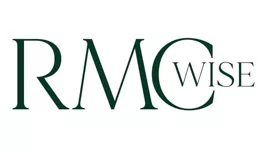Following a consultation paper earlier this year, ESMA has on 23 September 2022 published its Final Report on Guidelines on Certain Aspects of the MiFID II Suitability Requirements (the "Guidelines").
These Guidelines, which update the previous Guidelines of 2018, mainly integrate (i) sustainability factors, risk and preferences into certain organisational requirements and operating conditions for Investment Firms; (ii) the outcome of the 2020 Common Supervisory Action ('CSA') which focused on suitability requirements; and (iii) updated guidance on the suitability process in general.
The Guidelines are applicable to Investment Firms and Credit Institutions providing investment advice and portfolio management, UCITS Management Companies and AIFMs when providing investment advice and individual portfolio management (collectively referred to as "Firms").
With respect to sustainability, the main amendments reflect the changes introduced to the MIFID II Delegated Regulation, namely:
- Information to clients on the sustainability preferences – this needs to be clear and avoiding technical jargon such that the clients can better understand the concept of sustainability;
- Collection of information from clients on sustainability preferences – Firms are required to obtain information on the clients' sustainability preferences and the extent of investment in such products;
- Assessment of sustainability preferences – following the information collected on the client's knowledge, experience, financial situation and investment objectives, the Firm should identify those products which best match the client's suitability preferences;
- Organisational requirements – it is important that the Firm's staff are trained on the area of sustainability in order to be in a position to understand the requirements, provide correct and clear information to the client and carry out the suitability assessment in an appropriate manner.
The Guidelines also address issues which arise in the context of the lack of sustainable products available and instances where the client does not specify suitability preferences or does not provide enough detail.
Furthermore, the Guidelines include a list of 'good' and 'poor' practices observed by the various National Competent Authorities during the 2020 CSA which should serve as further guidance in applying the MiFID II suitability requirements.
It is expected that ESMA also publishes ad hoc Q&As to further clarify certain issues relating to suitability requirements which have not been addressed through these updated Guidelines. The Guidelines shall apply six months after the date of the publication of the translated versions on ESMA's website. The previous Guidelines of 2018 will cease to apply on the same date.
The content of this article is intended to provide a general guide to the subject matter. Specialist advice should be sought about your specific circumstances.


